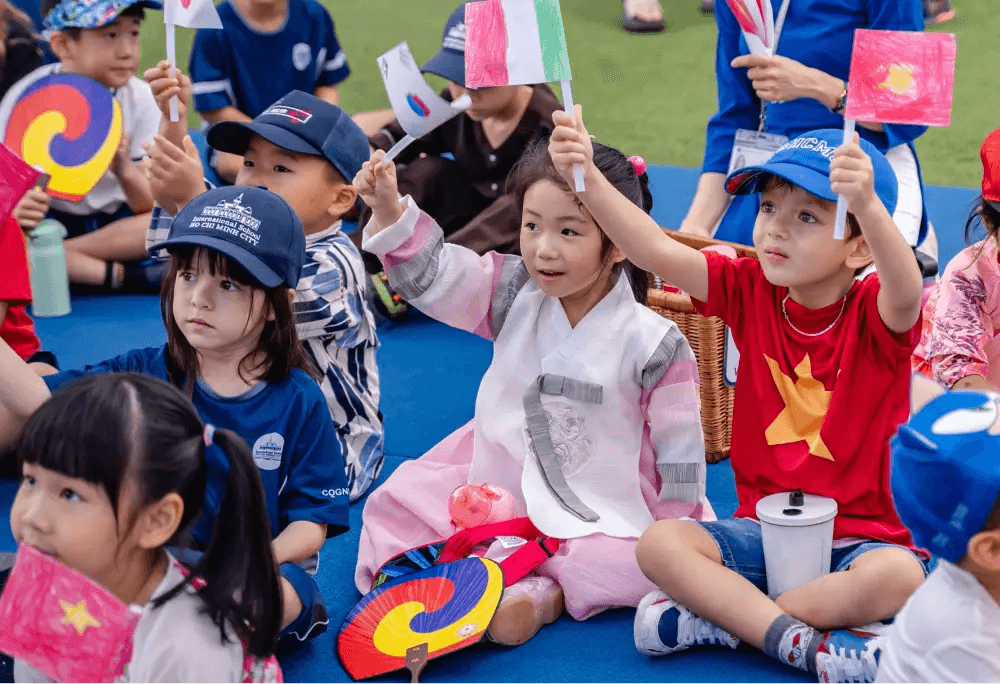What is Intercultural Communication? Benefits and Importance
The streamlined connection to the worldwide community has raised the need for understanding countries and cultures. Developing intercultural communication can eliminate linguistic and cultural boundaries, leading to higher respect and effective cooperation. The article will outline “What is intercultural communication” and practices to develop this ability across cultural differences.
What is Intercultural Communication?
Intercultural communication is the practice and study of communication across different social groups and cultures. This study also refers to the diverse variety of communication processes and issues that arise within a group with people from different cultures and backgrounds.
Besides, intercultural communications emphasize respecting and recognizing individuals with cultural differences. They encourage the growth of cultural sensitivity and facilitate empathetic understanding across various cultures.
Intercultural communication competence refers to the ability to appropriately communicate across different cultures, which can be inherent or require practice. Here are some competencies beyond simple linguistic skills:
- Self-awareness: Your own beliefs, potential biases, and behaviors can influence a conversation. Understanding all these factors will enhance your ability to engage meaningfully with others.
- Respect: Individuals have different opinions on a specific group’s culture. However, you can show respect by acknowledging their right to hold their views and practices.
- Empathy: According to the intercultural communication definition, individuals should empathize and appreciate different perspectives to foster genuine connections across cultures.
- Adaptability: Intercultural communication aims to help individuals adjust their communication style to eliminate conflict and confusion while promoting collaboration and harmony. Remaining flexible in your thoughts and engaging with others are essential.
- Positivity: Misunderstandings are common, and they are usually not the result of intentional miscommunication. Those unfamiliar with other cultures may miss the intended meaning of a message. Hence, it is crucial to keep a positive mindset and approach each intercultural interaction with a constructive perspective.
- Patience: Cultural differences make it challenging to understand new information fully. Instead of rushing to master the best practices, individuals should gradually incorporate them into their daily interactions.
- Emotional intelligence: Your ability to interpret messages effectively reflects the extent of your understanding and sympathy toward others’ perspectives. When interacting with individuals from different cultures, you need to catch the nuances of communication to promote mutual understanding and avoid misunderstandings.
Importance of Intercultural Communication
As students navigate intercultural communication, they learn to respect the social norms of different cultures, which requires awareness and adaptability. For example, in the US, people use small talk to build business relationships. However, British people may break the ice with humor, while Germans prefer to get straight to business. These differences highlight the importance of understanding cultural norms to communicate effectively. Intercultural communication is also essential in these terms:
- Better Self Reflection: Intercultural communication allows individuals to reflect on their own communication habits and styles, revealing how they may help or hinder interactions with cross-cultural individuals.
- Relationship-building: Effective cultural communication is vital to building relationships and working successfully in international communities, such as multinational companies and universities with host students from diverse backgrounds.
- Avoiding conflicts: Navigating cultural differences helps solve conflicts and find common ground with people of various ethnicities.

Components of Intercultural Communication Competence
Defining intercultural communication also involves exploring the knowledge, attitudes, and skills, contributing to effective interactions across cultures. This section explains these three components and discusses how they enhance intercultural communication.
Knowledge
Knowledge refers to the understanding of the values, customs, and beliefs of various cultures. This component extends to cultural norms, historical contexts, and traditions, highlighting the appreciation for the differences among diverse groups.
Knowledge helps individuals become aware of what characterizes cultures. Then, they can avoid misunderstandings, express themselves appropriately, and fit the cultural context.
For example, in the Middle East, greeting with a handshake while maintaining a certain physical distance is important. Conversely, in some cultures, a warm embrace may be a norm. Individuals can interact appropriately and build trust in their relationships as they recognize their differences.
Skills
Skills in intercultural communication refer to the ability to adapt and excel in multicultural settings and engage comfortably with people from different cultural backgrounds. For example:
- Listening: This skill involves concentrating and responding to other people as they are talking. By listening actively, individuals can pick up cues and create a safe space for open dialogue.
- Asking questions: Questions help seek clarification, especially when facing unfamiliar cultural expressions and concepts.
- Adapting communication styles: Individuals can modify their communication styles based on specific contexts, which shows respect for cultural norms.
Attitudes
A positive mindset towards cultural diversity is essential for developing intercultural differences, as it encourages individuals to recognize different traditions without prejudice. Open-minded people are more likely to explore unfamiliar cultural practices.
Moreover, you can show sympathy towards people from different cultures with positive attitudes. Empathy then bridges cultural divides by allowing you to relate to other’s experiences and emotions.

What Are Intercultural Communication Benefits for Students?
Understanding the intercultural communication meaning equips students with valuable skills that enhance their educational experience. Here are some key benefits of intercultural communication for students:
Personal Growth
As students engage with diverse cultures, they can examine their cultural biases and develop a broader worldview. The exposure also increases awareness of how their upbringing shapes their perspectives. This journey fosters open-mindedness, enabling them to adapt their behaviors and communication styles in multicultural settings.
Enhanced Communication Skill
By cultivating intercultural competencies, students can tailor their communication styles to fit various contexts. The heightened awareness fosters smoother interactions and deepens connections with individuals from diverse backgrounds. Strong communication skills can then help them forge meaningful relationships.
Cultural Adaptability
Students with intercultural communication competence can skillfully modify their behaviors to accommodate the values of other cultures. Hence, they can connect with people from various backgrounds easily. This flexibility allows smoother transitions during study abroad programs, relocation experiences, and travel.
Global Mindset
Intercultural competence cultivates a global mindset in students as they learn to interact with individuals from various cultures. They can broaden their horizons and enhance their sense of global citizenship, making them more aware of their responsibilities in an interconnected world.
Career Advancement
Nowadays, many employers prioritize candidates who can thrive in diverse teams and communicate effectively with partners and clients from different backgrounds. By demonstrating intercultural communication skills, students will have more international career opportunities.

How to Develop Intercultural Communication Skills in Students?
The following strategies will maximize the intercultural communication skills benefits for students, educators, and parents.
Enhance Cultural Awareness
Activities like celebrating local holidays and inviting classmates to share their customs can help enhance intercultural communication skills. When students recognize the value of different cultures, they can develop a mutual understanding of each other’s backgrounds.
Encourage Curiosity
Curiosity drives students to connect with others and discover different perspectives. While many consider curiosity innate, educators and parents can help cultivate it in students over time. For example, in classrooms, teachers can prompt students to ask questions about one another and give them opportunities to explore culture-related topics.
Invest in Language Education
Language is a powerful tool to strengthen intercultural communication competence. By learning a new language, students gain valuable insights into the customs and lifestyles of the speakers. Parents should consider investing in language education to ensure their children have the tools to interact with people with diverse cultures and languages effectively.
Promote a Culture of Respect
When students prioritize respect in their communications, they can reduce the likelihood of conflicts that harm their friendships and collaborative efforts. Teachers should create a positive classroom atmosphere by modeling appropriate behaviors and discouraging cultural insensitivity.
Choose an International School
There are many reasons to choose an international school. The international environment brings students from various cultural backgrounds, offering daily interactions with peers who have different ways of life and perspectives. The diversity also encourages students to explore and appreciate cultural differences.

How ISHCMC Promotes Intercultural Communication
Understanding intercultural communication plays a vital role in building meaningful relationships across cultures. ISHCMC promotes intercultural respect as an essential aspect of life in the 21st century. Our curriculum promotes appreciation for diverse cultures while helping students maintain a strong sense of self.
If you are eager to provide your child with the opportunity to develop vital intercultural communication skills and thrive in a multicultural environment, apply to ISHCMC today! Together, we can help your child grow into a global citizen!






